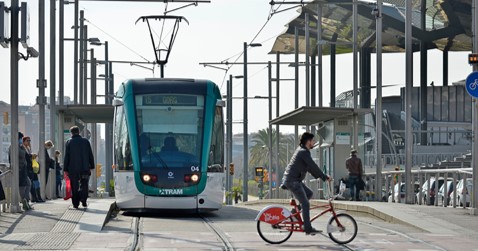
Impact assessment support study for the new proposal addressing the development of multimodal digital mobility services and a cost-benefit analysis for the revision of Delegated Regulation (EU) 2017/1926 on multimodal travel information services
 Maximising multimodality and intermodality in passenger mobility is a key element in reducing transport’s contribution to climate change while ensuring that transport systems operate efficiently, both within Member States and also across the EU’s internal borders.
Maximising multimodality and intermodality in passenger mobility is a key element in reducing transport’s contribution to climate change while ensuring that transport systems operate efficiently, both within Member States and also across the EU’s internal borders.
Multimodal digital mobility services (MDMS) are, in turn, crucial to foster multimodality as they promote comparability, transparency, and the selling of products across operators and modes.
MDMS bring direct benefits to users: they help people to navigate and access an increasingly complex and diverse range of transport offerings, including a range of shared mobility services, as well as to understand the role and benefits of active modes, that will help them meet their mobility needs in different, more sustainable ways.
This can also help to increase accessibility more generally, and so help to reduce social exclusion, by enabling those most in need to access the mobility services that enable them to participate more fully in society. Services that support multimodal transport also help to make transport more efficient and sustainable by increasing the utilisation of the various transport services, improving their operation, and nudging users towards the more sustainable options.
The study is crucial in informing the scope and focus of the actions that are necessary at the EU level to ensure that MDMS can fully contribute to the aims of the Smart Mobility Strategy and the Green Deal and, more importantly, bring their associated benefits to users and the environment.

Archivio progetti
Project Description
CLIENT
European Commission – DG MOVE
PERIOD
2022
CONTACT
Claudia de Stasio
destasio@trt.it

